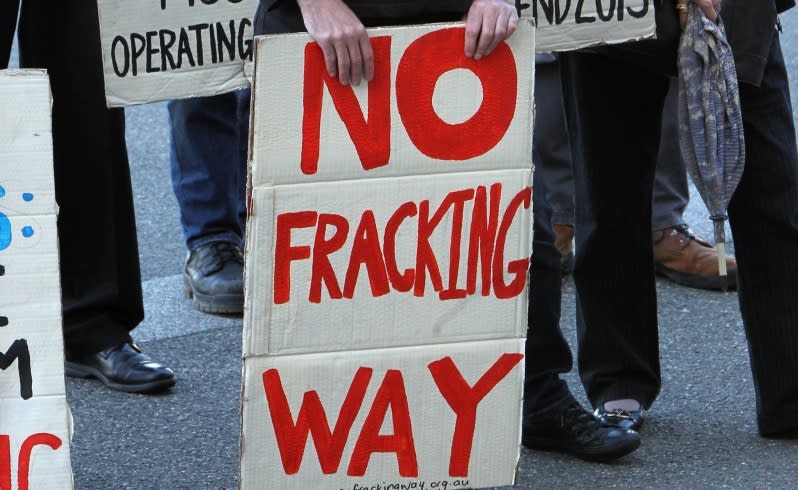Water Corp wants fracking ban

WA's monopoly water provider has called for the gas drilling technique known as fracking to be banned in areas where it affects drinking water sources, saying contamination risks are unacceptable.
The Water Corporation told an Upper House inquiry into the "implications" of fracking in WA that it opposed the practice in drinking water areas. The State-owned utility unsuccessfully asked for its comments to be kept confidential.
Fracking, or hydraulic fracturing, involves drilling wells vertically and often horizontally thousands of metres before using water, sand and chemicals to release "unconventional" gas resources such as tight gas and shale gas.
The technique has spawned huge industries, especially in the US and increasingly in the Eastern States, and the Barnett Government is hopeful it holds the key to unlocking trillions of cubic feet of onshore gas.
However, Water Corporation said the chemicals used in fracking and the risks of mistakes meant it should be "excluded" from areas that contained drinking water sources. It was particularly worried about the risks to groundwater sources in regional areas where there were no potable water alternatives - except expensive and impractical options.
The corporation said such areas represented less than one per cent of WA's landmass and they should be quarantined from fracking and have a 1.5km buffer to further reduce the risk.
"Water Corporation does not endorse any decision to increase public health risks in drinking water source areas as it runs counter with the fundamental principles of drinking water management," it said.
"Such a decision will come at a huge social, financial and ecological cost to the community."
Australian Petroleum Production and Exploration Association spokesman Stedman Ellis said the industry recognised the importance of drinking water sources but fracking was not necessarily incompatible with them.
"There are measures within the existing regulatory framework which ensure that sensitive water sources are protected," Mr Ellis said.


